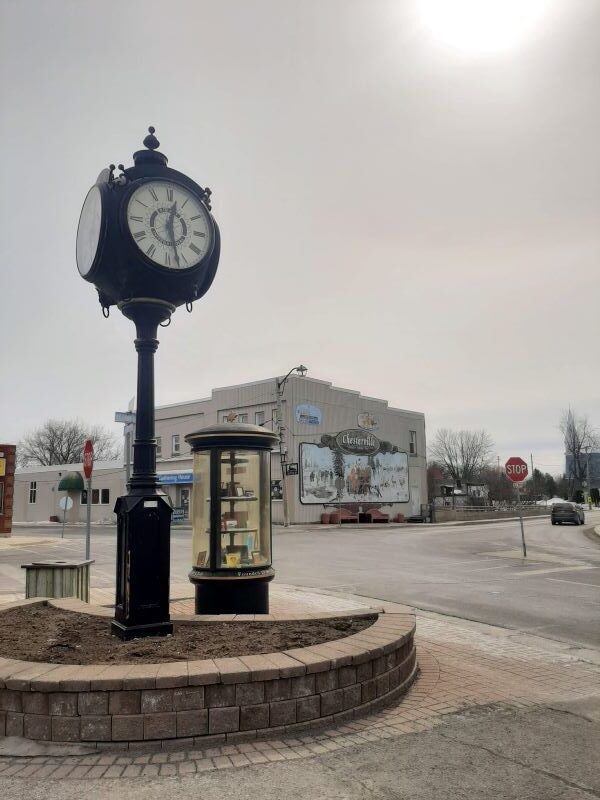The Ontario government, under the Emergency Management and Civil Protection Act, has extended the provincial declaration of emergency and the Stay-At-Home order (O.Reg 265/21).
Effective Saturday, April 17, police officers and other provincial offences officers will have the authority to require any individual to provide their home address and purpose for not being at their residence. In addition, police officers, special constables and First Nation Constables will have the authority to stop vehicles to inquire about an individual’s reasons for leaving their home. This additional enforcement tool will be in effect during the Stay-at-Home order and exclusively to enforce the Stay-at-Home order.
Premier Doug Ford made the announcement following consultation with the Chief Medical Officer of Health, and other health experts, who recommended strengthening enforcement of the province’s Stay-at-Home order. New travel restrictions are being imposed along with further strengthening of public health measures. The order currently in effect requires everyone to remain at home except for specified purposes, such as going to the grocery store or pharmacy, accessing health care services (including getting vaccinated), for outdoor exercise, or for work that cannot be done remotely. As a result of the rapid increase in transmission rates of COVID-19 and its variants, Ontario has declared this third provincial order.
As part of Phase Two of the COVID-19 vaccine distribution plan, people living in regions with the highest rates of transmission will be prioritized to receive a vaccine, starting with the most at-risk in the Peel and Toronto public health regions. This initiative will be expanded to additional “hot spot” regions based on established patterns of transmission, severe illness, and mortality. The vaccine distribution plan will dedicate 25 per cent of future vaccine allocations to the 13 public health regions with historic and ongoing high rates of death, hospitalization and COVID-19 transmission.
As part of Phase Two of the COVID-19 vaccine distribution plan, people living in regions with the highest rates of transmission will be prioritized to receive a vaccine, starting with the most at-risk in the Peel and Toronto public health regions. This initiative will be expanded to additional “hot spot” regions, based on established patterns of transmission, severe illness, and mortality. The vaccine distribution plan will dedicate 25 per cent of future vaccine allocations to the 13 public health regions with historic and ongoing high rates of death, hospitalization and COVID-19 transmission.
As of April 17, the following measures will be in effect:
- Prohibit all outdoor social gatherings and organized public events, except for with members of the same household, or one other person from outside that household who lives alone, or a caregiver for any member of the household;
- Close all non-essential workplaces in the construction sector;
- Reduce capacity limits to 25 per cent in all retail settings where in-store shopping is permitted. This includes supermarkets, grocery stores, convenience stores, indoor farmers’ markets, other stores that primarily sell food and pharmacies; and,
Close all outdoor recreational amenities, such as golf courses, basketball courts, soccer fields, and playgrounds with limited exceptions; - Limit the capacity of weddings, funerals, and religious services, rites or ceremonies to 10 people indoors or outdoors. Social gatherings associated with these services, such as receptions, are prohibited. Drive-in services will be permitted.
- All other public health and workplace safety measures for non-essential retail (i.e., curbside pick-up and delivery only), will continue to apply.
“As we see the trends in key health indicators deteriorate to levels far exceeding anything we have seen before, it is necessary to follow public health and workplace safety measures given this continued and rapid case growth,” said Dr. David Williams, Chief Medical Officer of Health. “By staying at home and limiting travel for essential purposes only, such as getting groceries or going to a medical appointment or to get vaccinated, we can reduce mobility and help interrupt transmission of this virus.”
Since the North Dundas Times went to press, Premier Doug Ford has changed some of the provisions in place for the province-wide lockdown, and has re-opened playgrounds, after public backlash. The Premier rescinded the province’s stance within 24 hours of announcing it.
The OPP issued a press release stating, “ Consistent with the new emergency orders, OPP officers will not arbitrarily stop an individual or a vehicle, or enter a dwelling for the singular purpose of checking compliance with the order. Individuals are not expected to provide proof of essential work. Officers who believe an individual may be participating in a gathering that is prohibited may require the individual to provide information to determine whether or not they are in compliance.”




